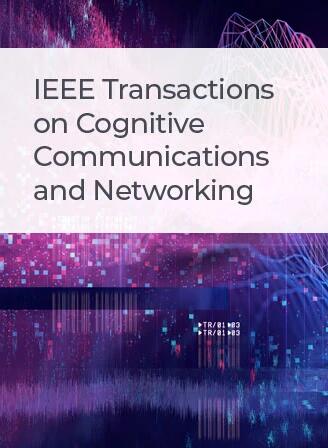Multi-Source to Multi-Target Decentralized Federated Domain Adaptation
IF 7.4
1区 计算机科学
Q1 TELECOMMUNICATIONS
IEEE Transactions on Cognitive Communications and Networking
Pub Date : 2024-01-11
DOI:10.1109/TCCN.2024.3352976
引用次数: 0
Abstract
Heterogeneity across devices in federated learning (FL) typically refers to statistical (e.g., non-i.i.d. data distributions) and resource (e.g., communication bandwidth) dimensions. In this paper, we focus on another important dimension that has received less attention: varying quantities/distributions of labeled and unlabeled data across devices. In order to leverage all data, we develop a decentralized federated domain adaptation methodology which considers the transfer of ML models from devices with high quality labeled data (called sources) to devices with low quality or unlabeled data (called targets). Our methodology, Source-Target Determination and Link Formation (ST-LF), optimizes both (i) classification of devices into sources and targets and (ii) source-target link formation, in a manner that considers the trade-off between ML model accuracy and communication energy efficiency. To obtain a concrete objective function, we derive a measurable generalization error bound that accounts for estimates of source-target hypothesis deviations and divergences between data distributions. The resulting optimization problem is a mixed-integer signomial program, a class of NP-hard problems, for which we develop an algorithm based on successive convex approximations to solve it tractably. Subsequent numerical evaluations of ST-LF demonstrate that it improves classification accuracy and energy efficiency over state-of-the-art baselines.多来源到多目标的分散式联合领域适应性
联合学习(FL)中设备间的异质性通常指统计(如非同义数据分布)和资源(如通信带宽)方面。在本文中,我们将重点关注另一个关注度较低的重要维度:跨设备的已标记和未标记数据的不同数量/分布。为了充分利用所有数据,我们开发了一种去中心化的联合领域适应方法,该方法考虑了将智能语言模型从拥有高质量标记数据的设备(称为源)转移到拥有低质量或未标记数据的设备(称为目标)。我们的方法 "源-目标确定和链接形成(ST-LF)"优化了(i)将设备分类为源和目标,以及(ii)源-目标链接形成,其方式考虑了 ML 模型准确性和通信能效之间的权衡。为了获得具体的目标函数,我们推导出了一个可测量的泛化误差约束,它考虑到了源-目标假设偏差的估计值和数据分布之间的发散性。由此产生的优化问题是一个混合整数符号程序,属于 NP 难度较大的问题,为此我们开发了一种基于连续凸近似的算法,以轻松解决该问题。随后对 ST-LF 进行的数值评估表明,它比最先进的基线算法提高了分类精度和能效。
本文章由计算机程序翻译,如有差异,请以英文原文为准。
求助全文
约1分钟内获得全文
求助全文
来源期刊

IEEE Transactions on Cognitive Communications and Networking
Computer Science-Artificial Intelligence
CiteScore
15.50
自引率
7.00%
发文量
108
期刊介绍:
The IEEE Transactions on Cognitive Communications and Networking (TCCN) aims to publish high-quality manuscripts that push the boundaries of cognitive communications and networking research. Cognitive, in this context, refers to the application of perception, learning, reasoning, memory, and adaptive approaches in communication system design. The transactions welcome submissions that explore various aspects of cognitive communications and networks, focusing on innovative and holistic approaches to complex system design. Key topics covered include architecture, protocols, cross-layer design, and cognition cycle design for cognitive networks. Additionally, research on machine learning, artificial intelligence, end-to-end and distributed intelligence, software-defined networking, cognitive radios, spectrum sharing, and security and privacy issues in cognitive networks are of interest. The publication also encourages papers addressing novel services and applications enabled by these cognitive concepts.
 求助内容:
求助内容: 应助结果提醒方式:
应助结果提醒方式:


